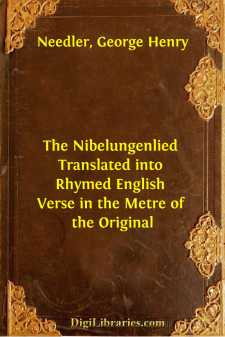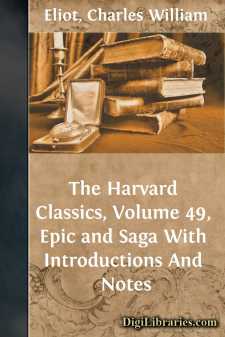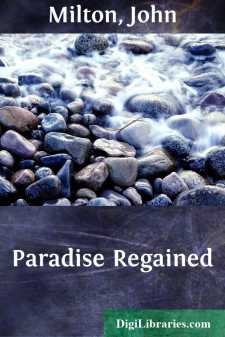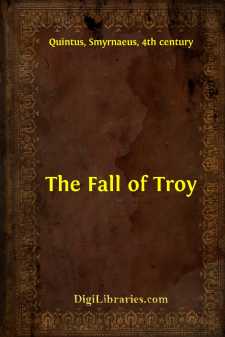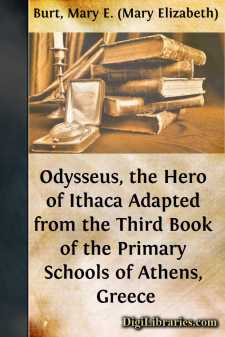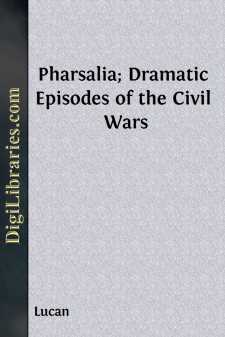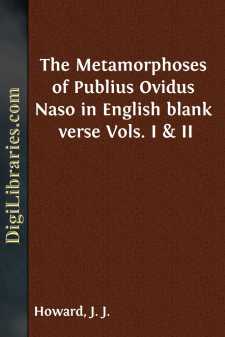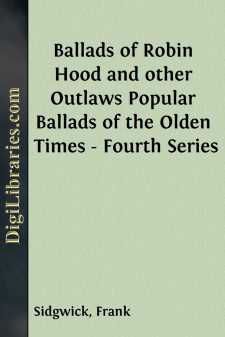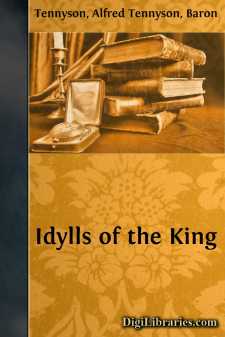Poetry
- American 96
- Ancient, Classical & Medieval
- Asian 15
- Australian & Oceanian 11
- Canadian 11
- Caribbean & Latin American 5
- Children's Poetry & Nursery rhymes 51
- Continental European 11
- English, Irish, Scottish, Welsh 162
- General 483
- Inspirational & Religious 7
- Middle Eastern 3
Ancient, Classical & Medieval Books
Sort by:
1. Origin of the Saga All the Aryan peoples have had their heroic age, the achievements of which form the basis of later saga. For the Germans this was the period of the Migrations, as it is called, in round numbers the two hundred years from 400 to 600, at the close of which we find them settled in those regions which they have, generally speaking, occupied ever since. During these two centuries...
more...
PART I THE TREASON OF GANELON SARAGOSSA. THE COUNCIL OF KING MARSIL IThe king our Emperor Carlemaine,Hath been for seven full years in Spain.From highland to sea hath he won the land;City was none might his arm withstand;Keep and castle alike went down--Save Saragossa, the mountain town.The King Marsilius holds the place,Who loveth not God, nor seeks His grace:He prays to Apollin, and serves...
more...
by:
John Milton
THE FIRST BOOK I, WHO erewhile the happy Garden sung By one man's disobedience lost, now sing Recovered Paradise to all mankind, By one man's firm obedience fully tried Through all temptation, and the Tempter foiled In all his wiles, defeated and repulsed, And Eden raised in the waste Wilderness. Thou Spirit, who led'st this glorious Eremite Into the...
more...
by:
John Keats
PREFACE. Knowing within myself the manner in which this Poem has been produced, it is not without a feeling of regret that I make it public. What manner I mean, will be quite clear to the reader, who must soon perceive great inexperience, immaturity, and every error denoting a feverish attempt, rather than a deed accomplished. The two first books, and indeed the two last, I feel sensible are not of...
more...
Homer's "Iliad" begins towards the close of the last of the ten years of the Trojan War: its incidents extend over some fifty days only, and it ends with the burial of Hector. The things which came before and after were told by other bards, who between them narrated the whole "cycle" of the events of the war, and so were called the Cyclic Poets. Of their works none have survived;...
more...
INTRODUCTION It has long been the opinion of many of the more progressive teachers of the United States that, next to Herakles, Odysseus is the hero closest to child-life, and that the stories from the "Odyssey" are the most suitable for reading-lessons. These conclusions have been reached through independent experiments not related to educational work in foreign countries. While sojourning in...
more...
by:
Lucan
BOOK I THE CROSSING OF THE RUBICON Wars worse than civil on Emathian (1) plains,And crime let loose we sing; how Rome's high racePlunged in her vitals her victorious sword;Armies akin embattled, with the forceOf all the shaken earth bent on the fray;And burst asunder, to the common guilt,A kingdom's compact; eagle with eagle met,Standard to standard, spear opposed to spear. Whence, citizens,...
more...
by:
J. J. Howard
THEFirst BookOF THEMETAMORPHOSESOFOVID. From bodies various form'd, mutative shapesMy Muse would sing:—Celestial powers give aid!From you those changes sprung,—inspire my pen;Connect each period of my venturous songUnsever'd, from old Chaös' rude misrule,Till now the world beneath Augustus smiles. While yet nor earth nor sea their place possest,Nor that cerulean...
more...
by:
Frank Sidgwick
PREFACE This volume concludes the series, begun in 1903, which was intended to comprise all the best traditional ballads of England and Scotland. The scheme of classification by subject-matter, arbitrary and haphazard as it may seem to be at one point or another, has, I think, proved more satisfactory than could have been anticipated; and in the end I have omitted no ballad without due justification....
more...
And indeed He seems to me Scarce other than my king's ideal knight, 'Who reverenced his conscience as his king; Whose glory was, redressing human wrong; Who spake no slander, no, nor listened to it; Who loved one only and who clave to her—' Her—over all whose realms to their last isle, Commingled with the gloom of imminent...
more...


